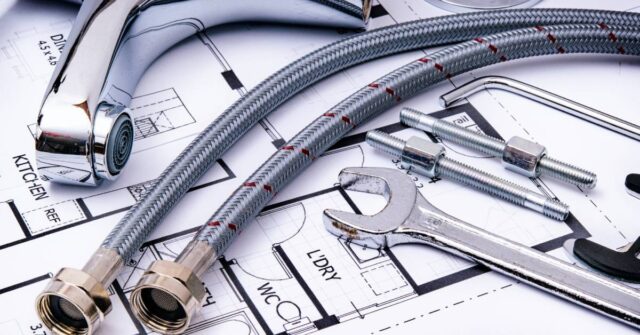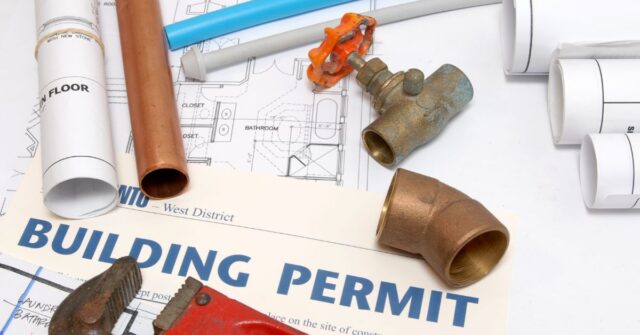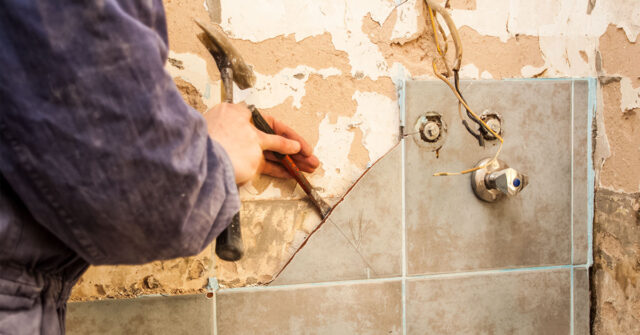Renovating a bathroom can transform your home, adding value and functionality. However, getting it right isn’t just about aesthetics; it’s about adhering to legal requirements and compliance standards.
Let’s break down everything you need to know to complete a successful and compliant bathroom renovation.
Introduction to Bathroom Renovation Requirements
Bathroom renovations are an exciting prospect, but they come with specific responsibilities.
Legal rules and compliance aren’t just bureaucratic red tape – they’re essential for ensuring safety, meeting building standards, and protecting your investment.
Whether it’s waterproofing or permits, knowing the requirements can save you headaches down the road.


Why Compliance Matters in Bathroom Renovations
Compliance is essential because it prevents potential safety risks and ensures the work meets national and local building codes.
Renovating without following regulations can lead to fines or structural problems that are expensive to fix.
By following the rules, you avoid these pitfalls and enjoy peace of mind knowing your home improvement project is built to last.
Common Challenges in Meeting Legal Standards
Staying on top of the legal aspects of a bathroom renovation can feel like juggling too many balls. From understanding local codes to obtaining the correct permits, the process can be tricky.
Many homeowners also struggle with hiring properly licensed tradespeople, leading to compliance issues.
Knowledge is power, and knowing the potential roadblocks ahead of time can make the process smoother.
Understanding Australian Bathroom Renovation Regulations
Australia has strict regulations for bathroom renovations, ensuring all work is done safely and professionally.
These rules vary by state and territory, but they share common goals: protecting homeowners and maintaining high construction standards.
Overview of National Building Code and Standards
The National Construction Code (NCC) outlines key requirements for all building work in Australia.
Bathrooms must adhere to Australian Standard AS 3740 for waterproofing, ensuring moisture doesn’t seep into walls or floors.
Additionally, the code specifies rules for ventilation, electrical safety, and plumbing installations.


State-Specific Regulations for Bathroom Renovations
Bathroom renovation regulations vary across Australia. For example:
- In New South Wales, licensed professionals must handle waterproofing and plumbing, with strict audits to ensure compliance.
- Queensland emphasizes QBCC (Queensland Building and Construction Commission) regulations and offers Home Warranty protection for larger projects.
- Victoria prioritizes energy efficiency, requiring water-saving fixtures and effective ventilation.
Knowing your state’s rules is essential to avoid delays and legal issues.
Key Standards for Waterproofing and Drainage
Waterproofing is non-negotiable in bathroom renovations. The AS 3740 standard sets guidelines for applying waterproof membranes in wet areas.
Proper drainage is also vital, as poorly installed systems can lead to flooding or water damage. A licensed professional can help get this right the first time.
Electrical and Plumbing Compliance
Electrical work in bathrooms must follow strict safety codes. This includes positioning power points away from water sources and ensuring all installations are done by a licensed electrician.
Plumbing work also requires compliance with regulations to prevent leaks, blockages, and contamination of water supply.
Permits and Approvals for Bathroom Renovations
Depending on the scope of your renovation, you may need various permits and approvals. Failing to obtain these can lead to hefty fines or having to undo completed work.
Let’s take a closer look at what’s required.
When Are Permits Required?
Permits are typically needed for structural changes, relocating plumbing or electrical fixtures, and significant modifications.
Minor cosmetic updates like repainting or replacing cabinets usually don’t require approval. Always check with your local council to confirm what’s needed.


Development Approval (DA) vs Complying Development Certificate (CDC)
In some cases, you’ll need a Development Approval (DA) from your local council, especially for extensive renovations.
For simpler projects, a Complying Development Certificate (CDC) might suffice. A CDC streamlines the process, allowing you to meet specific criteria without a full DA application.
How to Obtain Necessary Permits
Applying for permits involves submitting detailed plans, including drawings, specifications, and compliance statements.
Many councils now offer online portals to simplify the process. Remember, having clear documentation speeds up approval times.
Strata and Body Corporate Approvals for Apartments
If you live in an apartment or townhouse, you’ll need approval from your strata or body corporate before renovating.
This ensures your project doesn’t impact shared areas or other units. Be prepared to provide detailed plans and a timeline for the work.
Hiring Licensed Professionals
Getting the right people for the job isn’t just a good idea – it’s a legal requirement in many cases.
Licensed professionals bring expertise and accountability to your renovation, reducing the risk of non-compliance.
The Importance of Qualified Tradespeople
Licensed tradespeople have the training and credentials to handle bathroom renovations safely and correctly.
From plumbers to tilers, working with professionals ensures the job is done to a high standard. This isn’t just about quality – it’s about meeting legal obligations.


How to Verify Licensing and Certifications
You can verify a tradesperson’s license through state or territory government websites. Ask for their license number and check it against official databases.
Don’t hesitate to ask for references or examples of their previous work to gauge their experience.
Risks of Using Unlicensed Professionals
Cutting corners by hiring unlicensed workers can lead to substandard work and legal troubles. In some cases, insurance claims may be denied if non-compliant renovations cause damage.
It’s not worth the risk to save a few dollars upfront.
Ensuring Safety and Compliance
Safety is a top priority in any bathroom renovation. Adhering to regulations not only protects you but also ensures the durability and functionality of your new bathroom.
Waterproofing Standards as per AS 3740
Waterproofing plays a crucial role in preventing water damage. AS 3740 outlines requirements for applying waterproof membranes to wet areas, such as showers and bathtubs.
Properly applied waterproofing keeps moisture where it belongs.
Electrical Safety Guidelines
Bathrooms are high-risk areas for electrical hazards. Install power points and switches at safe distances from water sources and ensure all work is done by a licensed electrician.
Safety switches and circuit breakers are also mandatory in most cases.
Ventilation and Moisture Control Requirements
Proper ventilation prevents mould and mildew, which can cause health problems and structural damage.
Installing exhaust fans and ensuring adequate airflow can help maintain a healthy environment in your bathroom.
Accessibility Standards for Bathrooms
Accessibility is essential for homes with elderly or disabled occupants. Features such as grab bars, non-slip flooring, and wide doorways can make bathrooms safer and more functional.
Compliance with accessibility standards may also be required in some cases.
Designing for Compliance
A compliant bathroom doesn’t have to compromise on style. Thoughtful design can meet all legal standards while delivering a beautiful and functional space.
Bathroom Layout and Minimum Size Requirements
Bathroom layouts must meet minimum size requirements to allow for safe movement and installation of fixtures. For example, a shower area typically needs at least 900mm by 900mm of space.
Fixture Placement and Installation Guidelines
Fixtures like sinks, toilets, and bathtubs must be installed according to specific measurements. This ensures not only functionality but also compliance with building codes.
Optimizing Space While Adhering to Standards
Smaller bathrooms can still feel spacious with clever design choices. Wall-mounted fixtures, sliding doors, and well-placed mirrors can create the illusion of space without breaking any rules.


Maintaining Compliance Post-Renovation
Compliance doesn’t end when the work is done. Regular inspections and maintenance are crucial for keeping your bathroom safe and functional over time.
Inspection and Approval Processes
After completing renovations, your work may require an inspection to confirm compliance. This involves a licensed certifier reviewing the project to ensure all standards have been met.
Documentation and Record-Keeping
Keep all documentation related to your renovation, including permits, plans, and certificates of compliance. These records are useful for future reference or when selling your property.
Tips for Maintaining Bathroom Safety Over Time
Simple steps like cleaning exhaust fans, checking for leaks, and addressing wear and tear promptly can prolong the life of your renovation. Regular maintenance keeps your bathroom in top condition.
FAQs on Bathroom Renovation Compliance
Here are answers to some of the most common questions homeowners have about bathroom renovation requirements.


What Happens If Renovations Are Non-Compliant?
Non-compliant renovations can result in fines, legal disputes, or being forced to undo the work. Insurance claims may also be denied if issues arise from non-compliance.
How Can I Make Sure My Renovation Meets All Standards?
Working with licensed professionals, following state and local regulations, and obtaining necessary permits are the best ways to achieve compliance.
Regular communication with your contractor can also help.
Are DIY Renovations Allowed in Bathrooms?
DIY renovations are permitted for certain tasks, such as painting or tiling, but plumbing and electrical work must be done by licensed professionals. Always check local rules before starting any project.
Conclusion
Bathroom renovations can be rewarding, but they come with responsibilities. Meeting legal requirements protects your investment and ensures a safe, functional space.
NuDesign Bathroom Renovations is here to help with expert advice and professional service for your next project.





